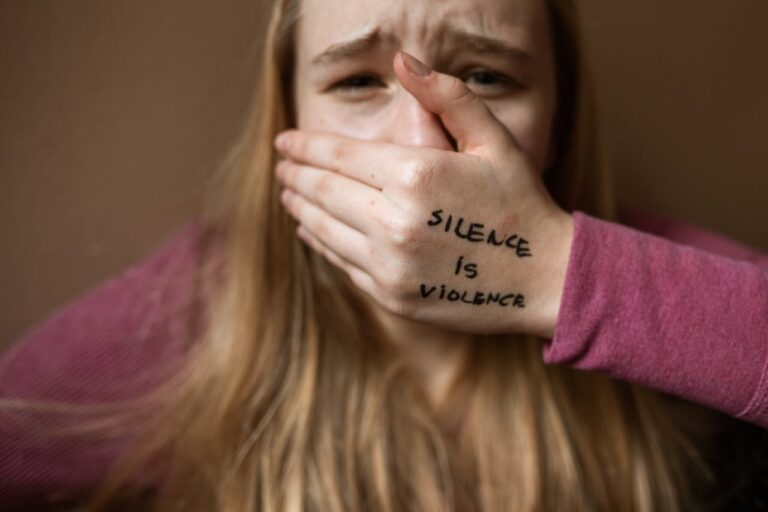At some point, many of us will encounter a relationship that feels more draining than uplifting—a connection that doesn’t bring out the best in us but instead chips away at our confidence and well-being. These are toxic relationships, and they can have a profound impact on mental health, making it crucial to understand and address harmful patterns within them.
This guide will help you recognize the signs of toxicity, uncover the underlying dynamics, and take actionable steps to break free. Whether you’re experiencing it firsthand, advocating for mental health, or guiding someone else through challenges, this post is your roadmap to healthier connections and personal growth.
Table of Contents
Understanding Toxic Relationship Patterns
Toxic relationships go beyond occasional disagreements or misunderstandings. They involve recurring harmful behaviour that erodes trust, respect, and emotional well-being.
Common Signs of a Toxic Relationship
Recognizing the warning signs is the first step:
- Constant Criticism: Frequent put-downs or negative comments disguised as “tough love.”
- Manipulation: Exploiting your vulnerabilities to maintain control.
- Gaslighting: Making you doubt your perceptions or sanity.
- Uneven Effort: A stark imbalance in emotional investment or contributions to the relationship.
- Lack of Empathy: A disregard for your feelings, needs, or well-being.
Psychological Effects of Toxicity
Prolonged exposure to toxic relationships can take a serious toll:
- Lowered self-esteem, is where you start questioning your worth.
- Increased anxiety or depression due to constant conflict or stress.
- Difficulty trusting others, affecting future relationships.
- Feelings of isolation, as toxic dynamics, can push others away.
Types of Toxic Relationships
Understanding the type of toxic connection you’re experiencing provides clarity for action:
- Romantic: Unhealthy dynamics where love turns into control or neglect.
- Friendship: One-sided relationships built on manipulation or jealousy.
- Professional: A supervisor or colleague who creates toxic workspaces through constant criticism or favouritism.
- Family: Dysfunctional behaviours that foster guilt or emotional manipulation.
Recognizing Toxicity in Relationships
Facing the truth about toxic relationships isn’t easy, but it’s necessary for healing.
Self-Reflection
Start by examining your role in the toxic dynamic:
- Are you enabling certain behaviours?
- Do you rationalize or excuse actions that feel wrong?
- Are you feeling drained or unhappy more often than fulfilled?
Acknowledge these patterns honestly to create the potential for change.
Identifying Manipulation and Control
Toxic relationships often involve subtle or overt power struggles. Look out for:
- Blame Shifting: They never take accountability for their actions.
- Silent Treatment: Withholding communication as a form of punishment.
- Jealousy: Unreasonable demands for your time and attention, limiting other connections.
The Importance of Boundaries
Healthy relationships thrive on mutual respect and boundaries. Knowing when to say “no” or asserting your needs is a powerful way to counter toxicity. Clear boundaries should communicate your expectations while protecting your emotional and mental space.
Breaking Free from Toxic Relationship Patterns
The process of disentangling from toxicity is challenging but ultimately liberating.
Seek Support
You don’t have to face this alone. Turn to trusted friends, family, or a therapist for the guidance and encouragement you need. They can provide perspective, help you weigh your options, or simply be a source of emotional support.
Joining support groups for individuals in similar situations can also validate your experience and strengthen your resolve.
Adopt Self-Care Practices
Healing from toxicity requires rebuilding your sense of self. Focus on:
- Reclaiming Your Time: Prioritize hobbies, goals, or passions.
- Mindfulness Practices: Meditation, journaling, or gentle exercise to manage stress.
- Affirmations: Replace internalized negativity with positive affirmations that reinforce your worth.
Choosing Distance or Ending the Relationship
This step can feel overwhelming, but it’s often necessary:
- If a reduction is possible, start limiting interactions.
- For relationships that are beyond repair, ending them may be the healthiest choice. Lean on your support system or professionals to guide this process.
Remember, setting boundaries or walking away isn’t a betrayal—it’s an act of self-respect.
Moving Forward
Healing from a toxic relationship is a gradual process of learning, growth, and rediscovering yourself.
Learn from the Past
Reflect on the relationship and the lessons you can carry forward. Ask yourself:
- What patterns will I actively avoid in the future?
- How can I better recognize signs of toxicity early?
Rebuild with Healthy Boundaries
Healthy relationships are built on trust, respect, and communication. Be intentional about establishing boundaries in future interactions to create an environment of mutual care.
Engage with Self-Love
Cultivate a deep sense of self-worth by prioritizing self-love. Understand that your value is not dependent on others’ treatment of you. Forgive yourself for past choices, and celebrate every step of progress you make.
Seek Professional Guidance
Entering therapy or enlisting the help of a life coach can pave the way for deeper healing. Professionals can help uncover subconscious patterns, guide emotional recovery, and provide tools to construct healthier relationships going forward.
A Journey to Hope and Healing
Escaping the cycle of toxic relationships is far from easy—it takes courage, self-reflection, and determination. But taking steps to identify harmful patterns and prioritize your well-being is a profound act of self-care.
For those currently in toxic relationships, remember that you’re not alone. Support is accessible, and there’s a path to freedom and healthier connections waiting for you. Choosing yourself is the first step toward creating the life and relationships you truly deserve.





















0 Comments